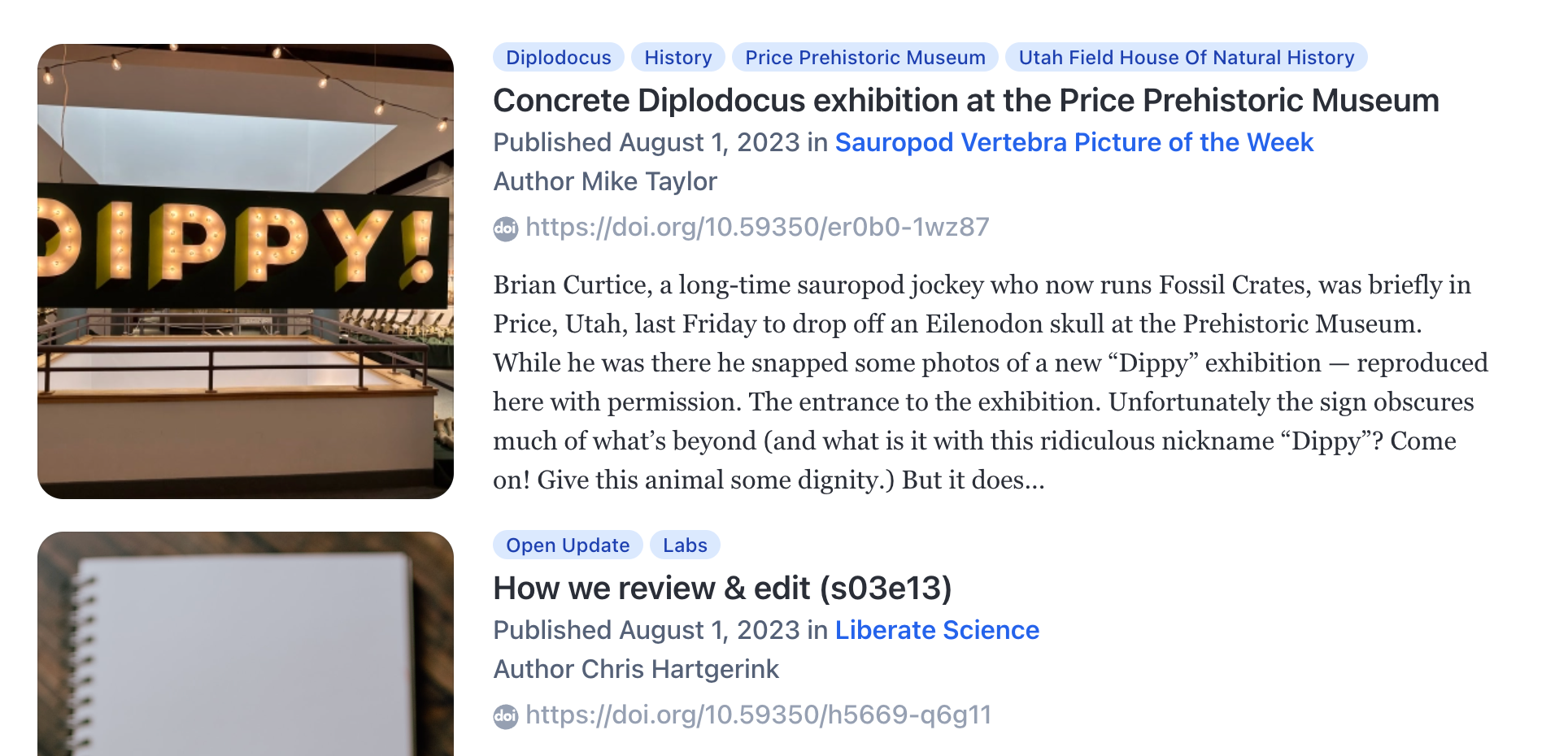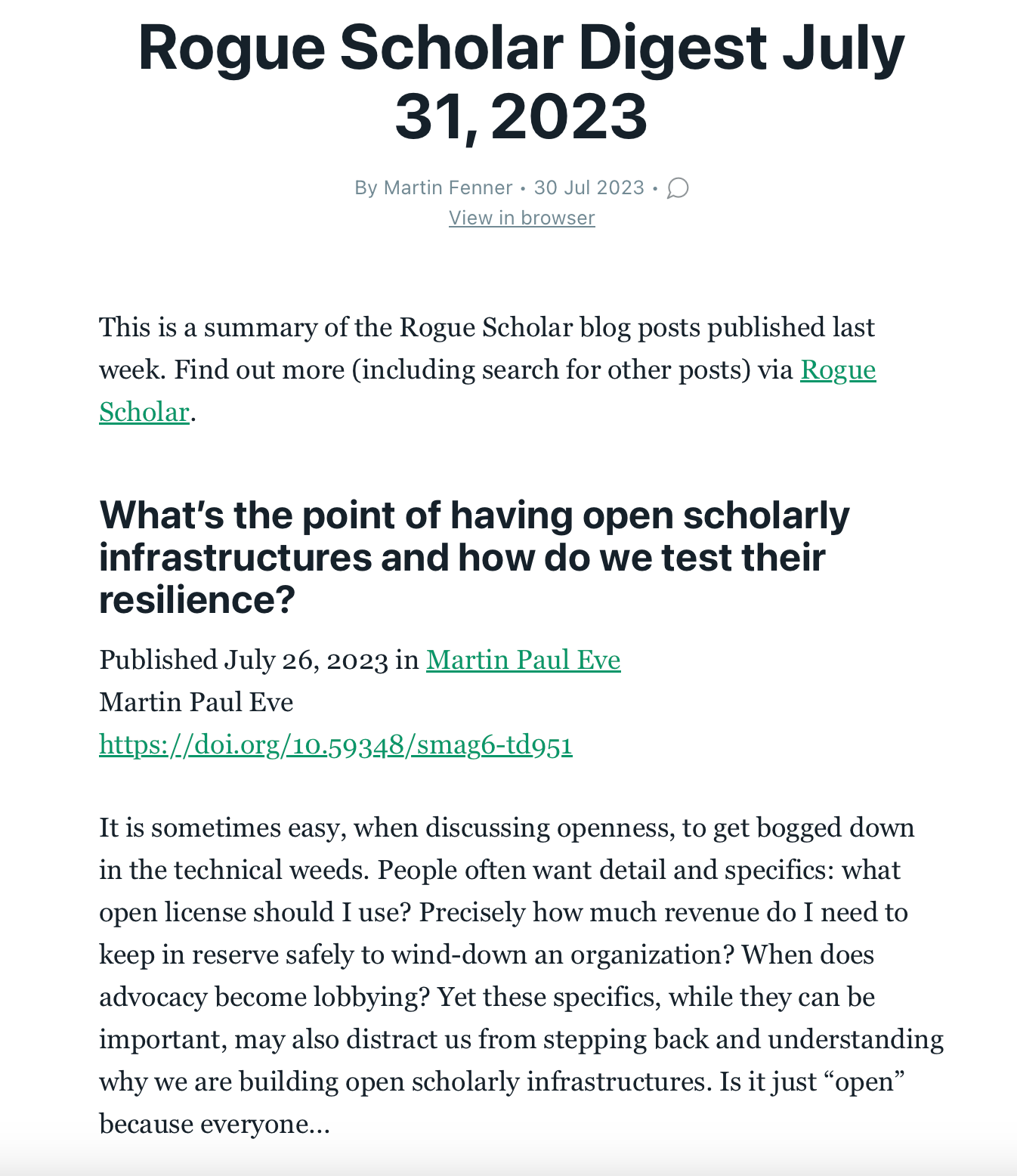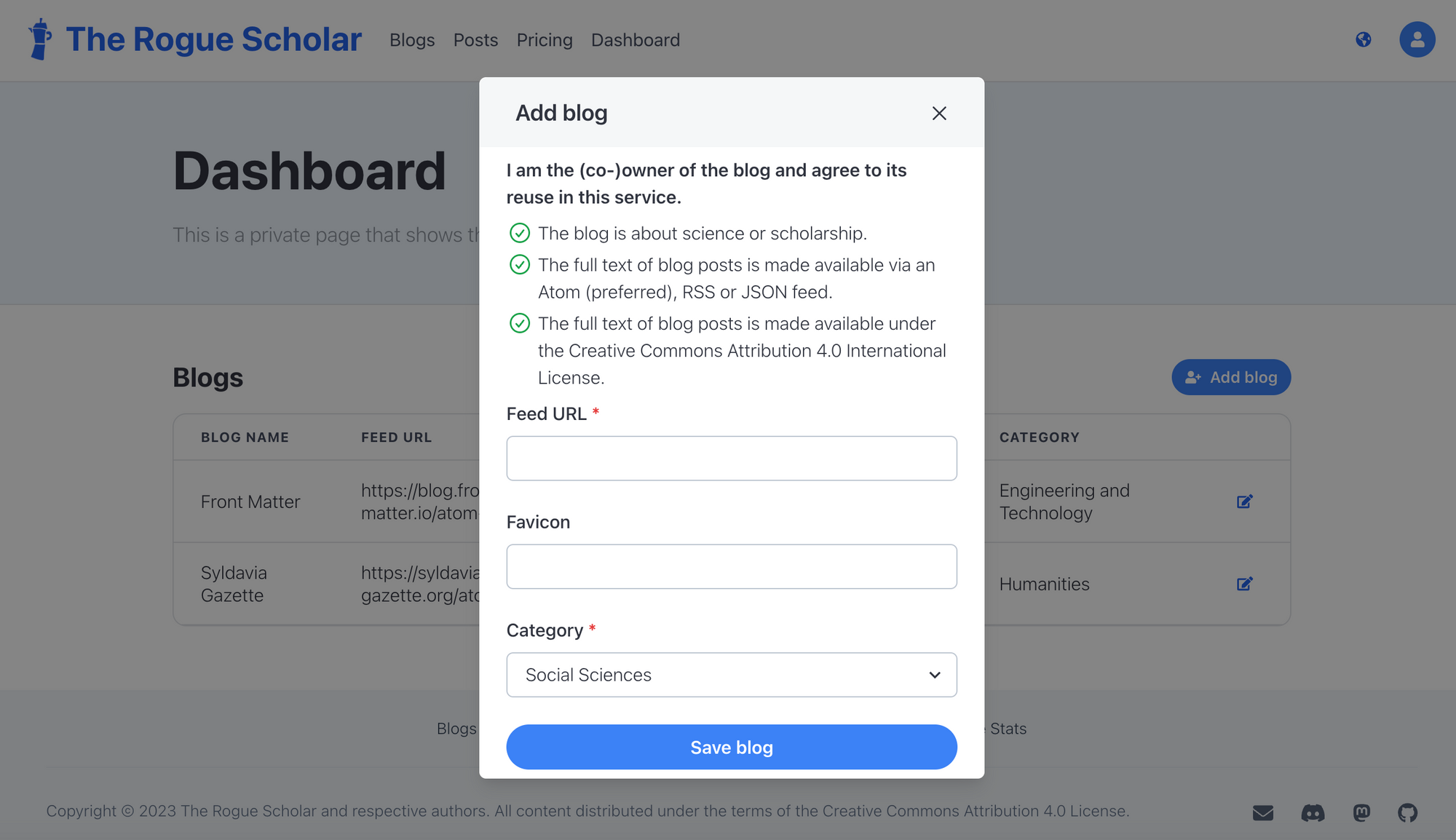
The Rogue Scholar science blog archive received a small update today with the following changes: optionally filter blog posts by language, added support for all OECD fields of science and technology, and searching by DOI.

The Rogue Scholar science blog archive received a small update today with the following changes: optionally filter blog posts by language, added support for all OECD fields of science and technology, and searching by DOI.

The Rogue Scholar science blog archive continues to grow. It is closing in on 50 science blogs (currently 45), 3,000 blog posts (currently 2,944, of which 2,775 have a DOI), and 250 (currently 212) blog posts with references registered with Crossref. I have set up eleven Mastodon bots for Rogue Scholar blogs after announcing the feature last week.

Today I am happy to announce that the Rogue Scholar science blog archive has joined the Fediverse, the federated social network that communicates using the ActivityPub protocol. I have launched a Mastodon instance at Rogue Scholar Social that accepts Science Blog bots as accounts, publishing summaries of blog posts. Science blogs are typically read by going to the blog homepage with a web browser or using an RSS reader.

This week the Rogue Scholar science blog archive reached another big milestone: 2,000 blog posts archived (2,242 as of today). This was achieved by adding new blogs (now 39) but, more importantly, by archiving older posts from the participating blogs.

The Rogue Scholar science blog archive adds important functionality to existing science blogs, namely archiving, full-text search, and DOI registration. While a lot of effort has gone into making Rogue Scholar as affordable as possible by using Open Source software, automation, and involving the community, it still costs money to build and run scholarly infrastructure, including scholarly infrastructure for science blogs.

The Rogue Scholar science blog archive adds important functionality to existing blogs, namely long-term archiving, full-text search, and DOI registration. In this week's update, I focussed on improving functionality that is specific for blogs and not really found regularly with other formats for scholarly content.Tags Tags are a common way to categorize blog posts and help find content of interest.

The Rogue Scholar science blog archive is growing nicely, reaching more than 1,500 blog posts this week, and 5-10 new posts every week. You can subscribe to all the blogs you are interested in via an RSS Reader and use various strategies to find and read interesting content, but some people prefer to receive regular email updates instead.

This week I added blog administration self-service to the Rogue Scholar blog archive. This makes adding a blog to Rogue Scholar easier, faster, and cheaper. To start blog administration please create an account with Rogue Scholar. Use the "Sign In" Link in the upper right corner to sign in or create an account with username and password, or sign in via Google or GitHub. Once signed in, you can add your blog via the Dashboard page.

Two weeks ago I added a first version of full-text search to the Rogue Scholar blog archive. This was a good start, as blogs typically only have the timeline, tags, and metadata like titles and authors to help readers find relevant content.

The Rogue Scholar science blog archive launched in April and I have been busy building out the core features of archiving the full-text of blog posts, establishing a full-text search, and registering DOIs and metadata for all posts. My announced goal was to complete this work by the end of the second quarter.